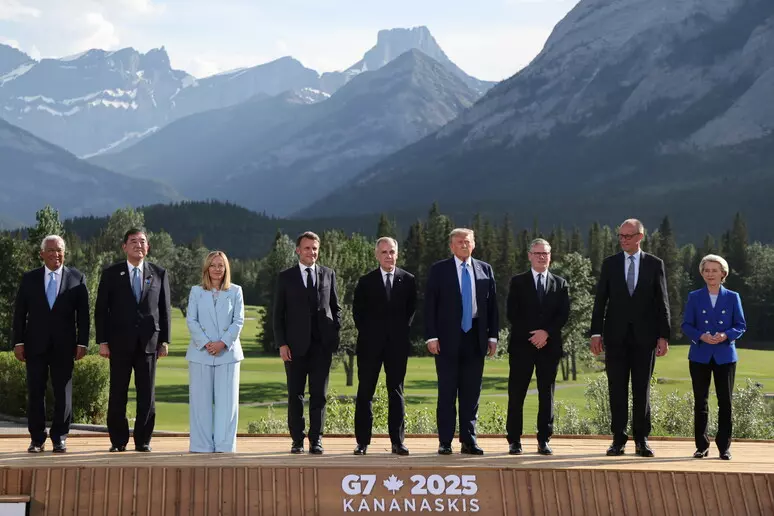Amid the silent mountains of a remote Canadian location, Kananaskis, chosen as the venue for the G7, world leaders gathered under exceptional security measures and rising geopolitical tensions. More surprising than the exchanges of accusations or threats of new tariffs was an unusual harmony: that between Ursula von der Leyen and Donald Trump, who until now had often clashed over economic and international relations issues.
During the summit’s proceedings, the President of the European Commission showed a surprising openness toward the positions of the U.S. president, acknowledging the legitimacy of some of his criticisms regarding China. Von der Leyen stated that the obsessive focus among Western partners on tariffs risks distracting from the real common threat: a global trading system undermined by unfair and coercive practices, particularly those of China.
According to the news outlet Politico, the European leader highlighted how President Trump hit the mark in denouncing distortions introduced by Beijing, which, in her view, systematically ignores the rules of international trade. Moreover, von der Leyen accused the Asian titan of restricting the export of strategic raw materials essential to key sectors such as electric mobility and renewable energy, a serious accusation that echoes the charge of using these resources as an “economic weapon” against Western competitors.
The Chinese restrictions on permanent magnets, which came into effect in April, are said to be just the latest piece of a broader strategy: flooding global markets with low-cost, state-subsidized products with the intent, according to the German official, of dominating global industrial and supply chains. For the EU president, this behavior does not represent healthy competition but rather a deliberate distortion of the global market.
Among the most discussed proposals on the G7 table was the idea of introducing a common 10% tariff on certain imports from the Asian giant, particularly in the most strategic sectors such as batteries and green technologies.
This position, though unexpected, seems to bring Europe closer to the assertive U.S. axis, just as Trump, at his first G7 of his second term, renewed pressure with familiar tones but increased urgency. After a day of intense negotiations, the GOP leader left the summit early, flying to Washington to directly manage the growing crisis in the Middle East. Meanwhile, he sent a clear message to journalists: the European Union has yet to present a fair trade offer, and without an agreement by July, tariffs could rise to as high as 50% on European imports.
The conference was supposed to address the issues of trade, the war in Ukraine, and rising tensions between Israel and Iran. But it was this last front that derailed the agenda: with Iran accused of intensifying its nuclear program, Israel launched preemptive strikes, triggering a spiral of conflicts that is still ongoing.












